You’re listening to Burnt Toast! This is the podcast where we talk about diet culture, fatphobia, parenting, and health. I’m Virginia Sole-Smith and I also write the Burnt Toast newsletter.
Today I am chatting with Jessica Wilson, MS, RD. Jessica is a dietitian and community organizer who co-created the #amplifymelanatedvoices challenge which went viral in 2020. She is also the author of It's Always Been Ours: Rewriting the Story of Black Women’s Bodies which came out in February and that’s what we’re talking about today.
Jessica’s work is incredible, it is challenging, it is important, and she’s really fun to talk to. If you are someone who has been in the anti-diet, intuitive eating, Health at Every Size spaces for a while, this conversation may give you some really big questions to sit with—it definitely did for me. If you’re newer to these spaces, I hope that this work helps you feel more welcome and more seen.
And remember, if you order It’s Always Been Ours from the Burnt Toast Bookshop, you can get 10 percent off that purchase if you also preorder (or have already preordered!) Fat Talk! (Just use the code FATTALK at checkout.)
Episode 87 Transcript
Jessica
So I have been a clinical dietitian for over a decade. I started in college health and I was taught zero things about eating disorders. I was very excited because people in their late teens and early twenties must just want to eat food and just learn how to adult!
Virginia
That sounds right.
Jessica
That was my assumption. I was not ready for people to not want to eat food. Like, I became a dietitian because I wanted to talk to people who wanted to eat food. Like, that makes sense.
Virginia
That does make sense.
Jessica
So, I was not ready. I was probably bad at it for a good two years, working with people with eating disorders and disordered eating because the nuances and complexities were just not what was written in books. It was all about, “They probably experienced trauma and this is why they have eating disorders so this is what you have to do,” and “ideal body weight.”
Virginia
Oh man.
Jessica
Yeah, that was the books.
Virginia
“Ideal body weight” should definitely be part of a conversation about eating disorders. That sounds great.
Jessica
So, I went from there into the Health at Every Size community and then I went out of the Health at Every Size community and into more body political spaces.
Virginia
We are talking about your incredible new book It's Always Been Ours: Rewriting the Story of Black Women’s Bodies which came out last month. I mean, Jessica, the book is powerful. So important, so beautifully written. I really could not put it down. You can ask my family, I was reading it last night and ignoring them. I want everyone who works in food and bodies in any capacity to read it because it feels like such an important and desperately missing piece of this conversation.
You argue that our continued focus on body positivity, on diet culture, on wellness culture, all of this is keeping us distracted from systems and structures that truly oppress bodies, and that this focus is enabling us to avoid a deeper, and I would say probably much harder, conversation about liberation. So let’s start there. Why do we need to do this reframing?
Jessica
I really appreciate that you teased that out and were actually open to this conversation because I don’t feel like this is where our field is. We’re still using “anti-diet” and “diet culture” and thinking that is good enough, thinking that is an umbrella-enough term to speak to everyone and their experiences.
Sabrina Strings has done a great job, Da'Shaun Harrison has done a great job of really breaking down how anti-fatness is connected to anti-Blackness and therefore structural racism and systemic inequalities. But somehow, we get caught. We just jump into what’s easier. And it’s easier to talk about a drive for thinness, or diet culture, or Ozempic, and how that’s impacting people’s bodies and thinking that is the problem. Or Ozempic is the problem. When, like, why are people shrinking themselves? Why is that happening, in a cultural context? Why are we not talking about white supremacy and capitalism and the safety and survival that is gained from folks by shrinking themselves?
But when we talk about just the drive for thinness or the thin ideal, or any of these simple conversations, it’s easier. It’s a harder conversation to talk about structures and so it keeps us really comfortable. It doesn’t ask us to stretch, it doesn’t implicate us in any of this stuff. Those of us who are white, those of us who are thin, we just get to talk to our people about not wanting to be on a diet anymore.
People aren’t seen in those conversations. We already know that folks of color, especially Black folks, don’t see themselves within the eating disorder diagnosis. That is for many reasons, but a lot of our choices to shrink our bodies and make us not as hyper visible come from safety and survival. So the more we talk about thinness, the more we talk about the cures and wellness or body positivity, the less we’re going to see our clients. And of course that has an impact on the care we give. That impacts who sees themselves within the field.
Virginia
I’m coming at this as a journalist—I’m not a clinician of any kind—and in reading your book, I was thinking a lot about how much the media has contributed to this through the eating disorder stories that we tell. I came from women’s magazines. I did a lot of harm. The eating disorders stories we told (and that the media continues to tell) always centered the thin white girl. That’s another layer to this I just want to name that. It’s the way that dietitians and therapists are approaching this work through the white lens. It’s also then being reinforced by the media’s discussion of these issues. And we’re seeing it for sure in the Ozempic coverage right now, which is just yet another women’s magazine story about weight loss.
Let’s talk a little more about this misconception that eating disorders develop when people are so concerned about their own bodies, disturbed by their own bodies, and how this leaves out anyone who’s struggling because their body disturbs other people.
Jessica
The body positivity conversations are always meant to fix this misconception that we have about our bodies. It’s the idea that our bodies are fine just the way they are and we just need to think they’re fine and then they will be fine. [Body positivity teaches that] the problem is within us, in the way that we can think about our bodies.
But that says nothing about the messages that we’re getting about our body from society. I may feel great about my body, but I still have to leave my house. Making me feel great about my body does nothing in the context of society. Thinking a size twelve is fine when I really want to be a size six, or whatever it is for white women. Yes, you can do that work, because it’s fine. But when we’re talking about other folks, it’s not fine. I can’t think myself out of my reality.
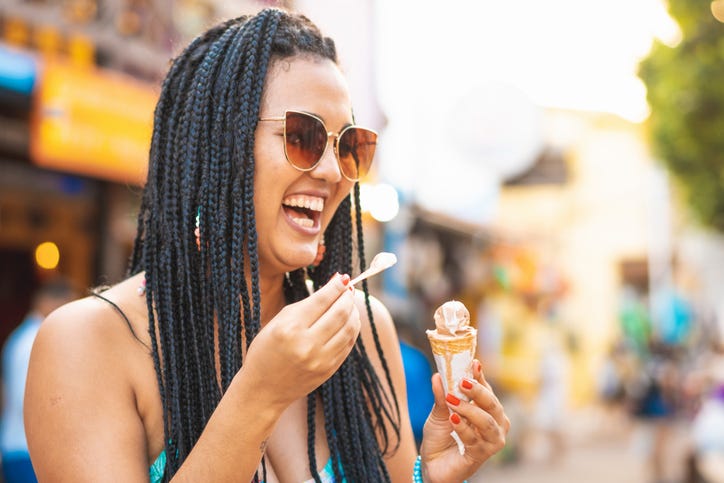
Virginia
I can’t think myself into accessing medical care.
Jessica
Or jobs.
Virginia
Jobs, clothing access, all of that stuff. And it’s tough because people’s individual pain is valid and real. But it’s just so much attention going towards this one very specific experience of that pain and not enough attention going to the rest.
Can you talk more about how eating disorder treatment fails Black women? I’d also love if you wanted to talk to us about Lexi who’s so important in the book and why concepts like diagnosis and recovery just don’t even necessarily make sense as treatment goals for some of these folks.
Jessica
I’ll start with a brief overview of Lexi’s story. She was a gymnast from age three and was always literally judged alongside thin white girls. As a Black gymnast, she was inherently “too muscular,” or “too powerful” for the more ‘elegant’ events. And she wanted to do the ‘elegant’ events, like beam and bars. So in order to be judged as appropriate for that, shrinking her body was something that meant winning. She never thought that her purging, that her laxative or whatever cleanse was disordered, because it just made sense.
Virginia
It was what she was being told to do.
Jessica
Right. Her scores were improving. She was “winning.” What was wrong with it? It was totally just normal for her. It wasn’t until I was like, “you might want to eat more than broccoli for dinner.” She was like, “hmmm, no.” I was like, “so this is the work that I do.” She’s like, “Yeah, this isn’t disordered. This is normal. Black girls don’t get eating disorders. That is for frail people. I’m not interested in being thin at all. This is about winning. This is not about thinness.”
Virginia
Interesting.
Jessica
Right. So it just wasn’t the language that we use, like a drive for thinness or whatever it is. She also wasn’t underweight. She’s probably technically, according to BMI standards, overweight and always being told by medical and professional folks to lose weight.
Virginia
Purging, all of that, was never getting flagged by any health care provider as something to worry about.
Jessica
Except for the dentist.
Virginia
Well, I’m glad someone noticed, but they aren’t exactly equipped.
Jessica
No, and they’re not going to coordinate any care. They’re just going to be like, hmm this thing, and be like that’s, that’s what’s going on here.
And then all our recovery models that are focused on “ideal body weight” and weight gain and all of these things. Why would that be something someone would consider when their life is, I wouldn’t say exponentially better because that’s entirely subjective, but what they’re doing is working, is how I put it. So this recovery questionnaire or these steps of meal plan exchanges or whatever it is, why would I be doing that? I don’t even have an eating disorder to begin with. What are you telling me to do?
Virginia
That definitely makes sense in the gymnastics context, but then how is this failing all Black women, not just Black gymnasts?
Jessica
So Lexi found safety and survival in what she was doing in gymnastics. But I was talking about Black women who are invisible but also hyper visible in any situation. For those of us who have been told we’re too much or we literally don’t fit into certain scenarios. There can be professional and social capital gained when we literally shrink our bodies because we become less literally and less of a threat to people around us, more palatable.
I tell the story of Mia in the book, who was in an all white grad program and saw that people were treating her differently as she went on her “wellness journey” and ended up losing weight. Me saying, “Hi, I saw in your chart—” which I did, “—that you have an eating disorder diagnosis.” She’s like, “No, that’s not why I’m here. That’s might be what it says.” But what she wanted was supplements to make her hair grow back. And that was it. She was like, “That’s not what I have. This is what I’m doing because it’s working.” And I’m like, I don’t have tools to deal with this situation. This is not what I was taught. So what do I do now?
Virginia
What do you do? Obviously, the practices that Mia and Lexi are engaging in are taking a toll on their health, but they’re also logical ways to keep their bodies safe. How do you navigate this obvious need for safety, and also this concern that you’re not eating enough?
Jessica
I think it’s great that you use the word navigate because I feel like some people would use the word treat, you know? Because what they have going on is, in theory, not a diagnosis. We’re not going to pathologize what they’re doing.
This is when the conversation becomes broader. So again, keeping it small and talking about the societal pressures of basic thinness or whatever it is really scapegoats a conversation about systems and structures and white supremacy. The solution, in theory, is changing society. But in those moments, all I can do is validate their reality, rather than saying, “actually, what I need you to do is…” or “you would feel better if…” I did get caught up into that, because it was like a desperation for me. It made it all about me in a moment. I was pushing what I thought she needed or what I wanted to see for myself because I wanted to be able to help this person. But the solution is not a clinical intervention, it’s a societal change.
Virginia
Which is hard.
Jessica
Right, what do you do?
Virginia
It’s a difficult place to find ourselves.
Jessica
So, I introduce Fearing the Black Body and she’s like, “Yes! This is what it is. And maybe I’ll read this later.” But right now, this is not, a conversation that I can have because this is how I need to survive right now.
Virginia
There’s a lot of heartbreak to this work you’re doing. A lot of heartbreak.
Jessica
Yes. It wasn’t until like a month ago that I just cried after an appointment. It wasn’t even like I let it build up. I was just able to sit in that moment and shed a few tears just because it was sad, not because it had anything to do with me or anything to do with that patient. This society is just trash and I’m going to be sad about that right now rather than making it about me and whether or not I’m able to cure this patient or whatever it is. And then I moved on. It was like, that was sad and I’m allowing it to just be sad.
Virginia
That sounds really important but really hard. I can imagine the struggle to to sit there in the moment and not make it about you. Not push like “but wait, we need you to eat bread.”
Jessica
“I need to problem solve this. I’m here to give the solution.”
Virginia
That’s really hard. And I mean, not to push for solutions because I understand it’s the systemic change, but I guess I’m just curious, what you would want to see from particularly all the white dietitians and folks in the field who are who are not going to innately have this context?
Jessica
As dietitians or therapists, we just focus on the food. You know, I am seeing someone like Mia get an eating disorder dietitian, when it’s not about the eating at all. So can I get you somebody who can talk to you about your identity development in context, so that you can see what is going on. You still get to make your own choices, but I want you to know that your body is not the problem. That’s not what we’re talking about here. We’re talking about society. I always think that healing comes from community. And that isn’t our body image groups or our eating disorder groups for these people. Turns out, that’s not going to be the solution. So yeah, what does that community look like for folks?
Virginia
Yeah, I loved when you talked about that in the book and and helping someone find online community with shared identities and they were like, “Oh, okay, you’re not sending me to an intuitive eating group?”
Jessica
That’s because I had done that. Because that’s what we’re supposed to do, send people to an eating disorder support group. And, you know, we had done that. And thought that that’s what I was saying, again, I’m like, oh, no, no, no, no. That’s not what we’re doing.
Virginia
I was also really struck in the book by these moments where it’s another Black woman talking to you like, “this is how I need you to behave.” And this concept of respectability coming up. I wonder if we could talk about that a little bit. Who is expected to perform respectability? And how is this another way we’re robbing Black women of bodily autonomy?
Jessica
I will start by saying in the context of respectability, a lot of people will say it’s a bad thing, across the board, for Black women to be telling other Black women how they should be acting in community. And recognizing again, the complexity of what older Black women or other Black women may have experienced and been policed for. Laughing loudly is a great example that I use in the book.
Virginia
The woman in the bar.
Jessica
My friend was being told to be quiet and stop basically laughing as loudly. The older Black woman was like, “That’s not how we should be acting in public,” basically. Another friend of mine was talking about how they were policed growing up and not knowing at all the context for this. It was just that they were acting incorrectly. There wasn’t a greater conversation about “I’m worried about you, if you go out you into society and how you will be treated.” There wasn’t any care given, it was just you need to not be doing X Y or Z thing. Like, I am worried about not even you, but society and how it functions. If we do these things, we may mitigate some of that harm. And if we do, the problem is still not on us. So how can we have these conversations?
I saw it a lot in the earlier earlier 2010s in the Health at Every Size community, it was very much “exercise intuitively, eat your way into being a good fatty” and those are well documented by fat folks. But yeah, the good fatty respectability and we can see it in food choices. You know, the whole foods sprouts, a person trying to gain some social capital by eating quinoa and kale first.
Virginia
It definitely resonated with me, with the good fatty pressure of how am I performing that I’m a fat person who exercises, all of that. As opposed to just just being able to be. You talked about wanting to just be Basic Black.
Jessica
To not be special or magic. Just to be average. Really just be.
Virginia
Trying to be magic all the time sounds exhausting.
And I want to talk about Lizzo, too, because this is a great example that you get into where respectability politics gets layered onto her, the Black magic stuff gets layered onto her. Expecting her to be the person who holds all of our body positivity hopes and dreams. All of that. It’s a lot of pressure for one phenomenally talented person who is just trying to make great music. We really saw this in 2020, you write about this in the book, with the whole smoothie debacle.
Jessica
Lizzo was very open and honest about having a very crappy 2020 or a really crappy October or whatever month it was, and decided to do like a smoothie cleanse. And for some people that is as far as they read into the situation. I had fat friends who were discussing cleansing, like she was doing a juice cleanse or whatever, but digging in, it was like smoothies and almond butter and apples and protein bars, or whatever it was. But how easily it was like, “Lizzo has gone against the body positivity rules.”
Virginia
She has failed us.
Jessica
Like, she said smoothie, she said cleanse. This is over. My love affair with Lizzo and everything that I had put onto her to make me feel better about my body is over because she said the word cleanse. I understand people getting triggered by other people’s behaviors, but how have you put so much of yourself into Lizzo’s existence that this is devastating?
Virginia
You don’t know her.
Jessica
No! She owes you nothing! Like, I don’t understand. Thin folks having commentary about why not to cleanse and this and that. And sure, do people do whatever program she was on for weight loss? Maybe! but she doesn’t owe us anything.
Virginia
She is a person existing in a world giving her all kinds of messages and pressures. Why are we expecting her to never have any reaction? Even if she was pursuing weight loss, that’s her own business. She’s dealing with her own shit.
Jessica
People are always telling her to put more clothes on and she’s too fat. In the world, as a Black woman, even if she was trying to lose weight, I get it. It sucks.
Virginia
It was really interesting to see that backlash. And I admit, I had a moment of sadness. I don’t feel that Lizzo owes me her eating habits, but I just had a moment of just like hearing the word cleanse.
And to be honest, I’m uncomfortable with it because I’m thinking more recently there’s this whole thing with Gwyneth Paltrow with that new video. That, to me, feels so much more overtly harmful. Because Gwenyth is detailing behaviors in very specific ways and she’s also selling a lot of these things. And Lizzo was like, this is something I’m doing for me. She wasn’t selling it in quite the same way. So I don’t know if that feels like a distinction to you or not.
Jessica
Its a really good point. I didn’t see anybody being triggered by Gwyneth. They were laughing at her and and talking about how it was basically an eating disorder. That was super easy, not eating anything but bone broth and vegetables. That’s easy. But I didn’t see the think pieces. I saw the think pieces on like why she’s weird. And selling us her silliness, for sure. But it wasn’t like “I’m triggered because I was looking to Gwyneth.” But both are celebrities and both owe us nothing. But why are we like so accepting of a thin white woman like telling us she’s actually disordered versus somebody saying that she’s only eating almond butter, apples, smoothies, protein bars.
Virginia
I think it is because nobody looks to Gwenyth for body acceptance. You look to her as aspiration of the thin white ideal that I’m striving for, but you don’t look to her to feel better about your own body. And Lizzo people want her to do that emotional work for them.
Jessica
That’s a great connection.
Virginia
It’s a complicated one.
Speaking of annoying white people, can we talk about Walter Willett? There’s a chapter in your book where you go to this thing called the Healthy Kitchens, Healthy Lives conference. It was a shit show and it really makes clear this intersection between healthism and racism that I would love to get into. Maybe we should start by talking about what healthism is, because that might be a newer concept for folks. And then we can talk about Walter.
Jessica
I think of healthism as the morality of being a “Healthy” person—I put healthy with a capital H because it’s a social construction. At Healthy Kitchens, Healthy Lives that meant the absence of disease and like quinoa and kale, and olive oil lifestyle. 1. You were not unhealthy and 2. You were eating in all these ways and exercising and performing capital H Health.
We have collectively as a society not decided on what health looks like. There is no absolute metric by any means. So then the purity and morality of all of that… a lot of people have critiqued Health at Every Size for for healthism as well. Doing these things in order to be healthy as a fat person. Lifestyle change yourself out of everything. And not even lifestyle change, but like meditate yourself out. Like you won’t actually have to take medication if you do X, Y, and Z things and that’s something you should aspire to.
Virginia
Right. We frame taking medication, which is receiving health care, we frame it as a failing, like it’s a last resort. You only do that if you can’t get your lifestyle under control.. As opposed to that being a pretty necessary way for a lot of us to exist in the world.
Jessica
Yeah, totally. And Healthy Kitchens, Healthy Lives made that clear. As we know, Health is not poor. Health is not Black and brown. Health is very thin, and depending on what five years span we are in, it might be fit. It might be bulky, it might be however we want it to be. Like, whatever health is changes. And of course, health is BMI and all of that jazz, as well.
Virginia
And at that conference, it was also not eating nearly enough food.
Jessica
Hahaha, good point.
Virginia
You kept describing a prune and strawberry shake.
Jessica
I hadn’t put together the Walter Willet of it all and the public health of it all. It just got like very scarcity about foods, like what if they don’t have eggs for breakfast? What if it’s vegan? What if everything is vegan? I’m just never going to be full on anything. And the portions were teeny tiny. It was very tea time vibes.
Virginia
Little plates. Nobody really wanting to admit that they’re hungry even though it’s lunchtime. Of course you need to eat food, you’re sitting in this nine hour conference. I was very glad you got tacos or nachos or something at night to survive. But they had you there on a panel, so talk a little bit about what you thought you were doing at the conference and what they wanted you to be doing at the conference.
Jessica
So Healthy Kitchens, Healthy Lives had invited me to talk about health disparities. This was their first time back in person post-COVID. And they needed to talk about health disparities, because apparently they just hadn’t before. And because it was 2022, they needed at least one Black person. I was the only Black person speaking at this conference, which was wild. And our panel was, of course, the end on the last day. So if people had left beforehand, they wouldn’t have to sit through what I was going to say. And initially, it was going to be a presentation. And I was always, like, very confused. I was just hearing that this person Walter—I was not given a last name—needed to approve these slides, because it’s all part of a curriculum that needed to be approved.
It got down to the things that I had wanted to say, like the way that the structures and systems are causing the health disparities, it’s not the humans themselves. Like, we are not health disparities. Your Blackness, your brownness, your fatness, your queerness—all of those things that you are are the health disparities. No, no, it’s how we treat people is the problem. And they were like, I don’t know. And I was like, I would like to critique the Mediterranean diet, and they’re like, oh no, I don’t think we can do that.

Virginia
Walter is not going to like that.
Jessica
It was bananas. Anyhow, I ended up on a panel with another woman of color and a white dude about health disparities. Why would there not be a white dude on a panel about health disparities? I talked about fatphobia, anti-fatness, racism. That was the first time anybody had named racism and white supremacy in a presentation, on the last day in the last hour, after talking about food insecurity forever and never mentioning food apartheid.
And the people in the audience, there were the stares, but also there was nodding. There were the aha moments when I was talking about health disparities, particularly in people’s bodies being risk factors. I said, “as a Black person, I would not walk into an office and you would not immediately say, ‘you need to not be Black.’ But when a fat person walks into your office what you’re going to say is that they need to not be themselves.” Like, it was those moments that people were like, I see. I see.
Then the most stark moment was when Walter got back to the podium and thanked the white guy for talking. And then wrapped it up and said what he had said was very important. But the other two, the women of color on the panel? Didn’t mention us at all. Didn’t thank us at all. It was like, case closed. It’s like we weren’t there there. It was wild.
Virginia
For folks who don’t know, just say who Walter Willett is and his position in health and nutrition spaces.
Jessica
He is a very esteemed researcher and was the director of the nutrition department at the Harvard T.H. Chan School of Public Health. He’s an emeritus, I believe, right now, but still highly regarded. He’s proudly referred to as the father of nutrition research. He’s got like a gazillion publications all about the Mediterranean diet and heart disease and how we’re all basically going to die if we don’t start eating nuts.
Virginia
I interviewed him several times many years ago in my women’s magazine phase, and let’s just say everything about your chapter, I was like, yep, yep. They were hard interviews because I was in a weird place of starting to do this unlearning but I’m reporting for Marie Claire magazine. I’m not getting taken seriously as a journalist because I’m a woman from a women’s magazine in that context. And he is a man who knows all about nutrition. So, there’s that thing to navigate. I was very much in a Health at Every Size framework at that point, but even that is like pretty wild. Walter is not here for the Health at Every Size framework. I’m trying to ask those questions and it’s just like talking to a wall.
I felt like I really understood that experience much better after Katherine Flegal published her piece. For folks who don’t know, she was a longtime CDC epidemiologist who published a lot of the literature reviews showing that higher BMI does not correlate with instant death the way we are taught and Walter Willett is one of the researchers who just like eviscerated her for that work. Public shaming and so much blatant sexism and fatphobia. So nothing about this was super surprising, but I’m really sorry you had to experience it. And also, I’m so glad you wrote about it because we need these godlike men to be deconstructed. So, thank you.
Jessica
I appreciate the empathy and sympathy for sure. But, you know, I did say yes to this. But that’s just how I have navigated all of these spaces. I have not been a martyr, like if I don’t, then somebody else won’t. But I’m like, what actually goes on here? How are all these policies created by this one guy? How does it work? Why are people so enamored? I was like, I really want to see this for myself. I don’t want to just critique blindly.
Virginia
I mean it’s fascinating because these are supposed to be scientists with some kind of scientific objectivity. And yet, there’s so much cult of personality. It’s really not very objective at all.
The other important critique that we’ve touched on a little bit is how you get into the problems with Health at Every Size and with intuitive eating and how these concepts do not go nearly far enough to actually serve folks because they are not articulating the existence of racism and have so many other problems. Let’s talk about intuitive eating. I think that’s something that people throw out as a term that feels really comfy and safe and like the opposite of all the things they’re trying to get away from. So it’s maybe unnerving for folks to hear that Jessica doesn’t like intuitive eating that much.
Jessica
People have definitely come and been mad and angry about my critiques of intuitive eating because they hold on to it so much, I find, from their own recovery. Like if it was helpful for them—shock and surprise, they’re mostly often white women—it’s supposed to work for you. Of course it did!
Virginia
You’re who they made it for.
Jessica
Yeah, of course. I’m not talking necessarily to you or trying to validate your experience.
I will back up and say that I was 1,000% an intuitive eating dietitian. I was Health at Every Size, intuitive eating, 1,000% this is the way to go. This is not dieting. This is listening to your body. What could be wrong with that? Intuitive just as a word sounds amazing. But just me trying to have more complex conversations with particularly the Health at Every Size and ASDAH communities, the think tank there and trying to bring in race, specifically, and fatness and Blackness—there was just no receptivity to it at all. I was told that this is actually just about fatness, there’s no need for us to talk about other intersecting identities. Like, thanks, Jessica, what we like is that you’re a person of color at this table. But could you just be quiet and be here so that we can like say that you’re at our table? No, that’s not really what I’m going to do.
And then I decided to not be a Health at Every Size provider anymore because it wasn’t helping the people who were in my community at that time. And I had move to the Bay Area, and we’re very involved in body politics and a lot of those people were queer, they’re trans, fat, folks of color, with multiple intersecting identities. And they were like, yeah, this whole Health at Every Size thing. It’s great for fat, white women with health care and money, but it’s not, it’s not helping me when I go to the doctor’s office. This card of Health at Every Size principles is not helping me access health care and be treated like human.
Virginia
And is that because a provider interacting with someone with multiple intersecting identities is just like, that’s just another barrier you’ve thrown up at that point? To be presenting this card like, this is my Health at Every Size manifesto. Because they’re already dealing with so many barriers, if they piss them off by not getting on the scale, then that doesn’t help them get the health care they need?
Jessica
The performance for our health care providers and how that’s safety and survival. Yeah, my friends were saying, I’m still Black or I’m still brown when I go to the doctor’s office. Them not weighing me or me having perfect lab results is still like not going to protect me from the medical racism that I’m experiencing there. So, that’s nice for you, this is our reality. So, I started having more conversations there.
And at the same time, I was having intuitive eating groups and the people in my groups were more on the body politics understanding and intersecting identities, but were also great at questioning intuitive eating. Like, they’d go through the book and be like, “Okay, tell me when I’m supposed to eat. Tell me what is too full. Tell me what to do if it’s lunchtime and I’m not hungry. Do I eat then when I’m not hungry?” Like 21 questions of how to do intuitive eating well.
I was like, oh, goodness, when you were dieting, this was laid out for you perfectly and you’re looking for the same safety and structures from intuitive eating. Maybe that is not the conversation that we need to be having. People who don’t have access to food, people who have experienced trauma or for whatever reason don’t have access to bodily cues, people who have food aversions, there are so many things that would interrupt and make intuition not applicable. But again, we’re still providing 10 principles. It looks very familiar to the safety I found in whatever I was previously doing.
Virginia
It’s another plan I can try to implement.
Jessica
1000% and until the most recent edition, it had “cope with your emotions without food.” Like that sounds very familiar. Never eat emotionally. Yeah, I think I’ve heard that before.
Virginia
It’s making it the hunger/fullness diet. And all the language around eating, like making decisions about what to eat based on your hunger as if we don’t ever eat for reasons beyond hunger. It’s so overly simplifying things.
Jessica
Never for pleasure. It was after I published the book, I think it was reading an article about intuitive eating and how someone ordered chocolate cake because she wanted it. And she ate three bites and like pushed it away. And the person in the interview was just marveling at her self control to only eat three bites, and I’m like, this is weird. If she had finished it, we’re going to be fine. Tomorrow is going to be Tuesday. We’re all going to be fine.
Virginia
The amount of cake is really not the question here.
I write a lot about these issues in parenting. And with kids there’s a lot of talk in the Division of Responsibility model about letting kids decide how much they should eat, which is a great principle. Absolutely. But it’s often framed with the promise of you will then get kids who can take or leave the treat foods, who don’t eat the cookies. And I’ve been guilty of this, I’ve used this language and then really reflected on it. Because it’s like, wait, the goal is not the kid who’s like, I don’t care about Oreos, I have like no response to Oreos. The goal is the kid who can enjoy Oreos and not feel guilty about it afterwards. So the amount of Oreos they eat is totally beside the point. But I think often it gets sold to parents as like “this will fix picky eating because this will get your kids to be less interested in treats and more interested in vegetables.” And it’s like, well, that’s just the same as another diet.
Jessica
I think about community care in this aspect. Lexi likes to tell the story about how when—so she had to come stay with us during COVID for a variety of reasons including personal loss and grief. So she ended up at our house and it was like the second or third day. We all went and did like a giant grocery shop. And she came back and had a bag of mini peanut butter cups. And I walked away to do something and came back shortly after and the bag was empty. And I’m like, oh, okay, I’m curious about that. She’s like, “Oh, yeah, it’s sugar stomach, like that’s just the thing that happens.” I’m like, “oh, what’s sugar stomach?”
Virginia
What’s sugar stomach?
Jessica
She’s like, “Well, you get something that you’re not allowed to eat, you eat it all, because you know you’re not supposed to eat it again tomorrow. And then you don’t end up eating dinner because you have sugar stomach and you’re too full.” It was like, oh, that’s interesting. Is this how you think about all things with sugar in them? Yes, of course and that is all of my upbringing. And I was like, Oh, okay.
So I went got the best peanut butter cups out there—the Trader Joe’s ones, I will fight you over that. I went and got them for myself and when I would eat them during the day, I would just walk past her and leave one or two or a handful or whatever. And she said at the beginning, “I was mad. Like, I’m just eating two. Or like, what if I wasn’t thinking or craving them right now but now I’m just eating two.” And you know, at the end, she left and, thankfully for me, left half a container of those peanut butter cups in the fridge because it was like whatever. That’s what community care can look like because now you’re able to eat as many of them as you want to and feel fine because they’re delicious. I want you to feel fine after peanut butter cups.
Virginia
Right. And it’s not that oh, you only ate two or you left half the container. It’s that you were able to engage with this food in a positive way without having a whole thing about it.
Jessica
And “never eating them again,” but also eating them again.
Butter
Jessica
It’s stereotypical to be a food thing, but I’m still going to recommend tater tots in the air fryer.
Virginia
Oh, that sounds great.
Jessica
Yep, they can be made into so many things or eaten just by themselves. They’re a food that I stopped eating at whatever age but have brought back as a 40+ year old and am very happy about it.
Virginia
That sounds great. And do you use ketchup other condiments or just straight?
Jessica
All of the above. I have them with eggs, I have them on the side of things. You can make them into nachos or whatever you want.
Virginia
Oh, I like that idea. Just as like a good fundamental base of a meal.
Jessica
How can I plan my meal around tater tots as the primary food?
Virginia
I love it. I love it. My butter this week is just a little practical hack for fat folks. As my body changed, a lot of my necklaces didn’t fit anymore. And I didn’t expect this, I didn’t know necks get fatter. Of course, they get fatter. It’s great. It’s fine. But it was a little moment of sadness. I had some favorite necklaces that I couldn’t wear anymore. And I just discovered necklace extenders are a thing that they sell! You can get them on Etsy, you can get them lots of places. (Here are the necklace extenders I bought.)
They’re just a little extra two inches of chain that you can clip onto your necklace so that a necklace that has gotten too tight now fits. I’m wearing one right now! It’s such an easy hack and I just want to make sure that everyone knows about it because it’s bringing me a lot of joy to have favorite necklaces back in rotation. It’s such a small thing, but really nice.
Jessica, thank you so much. Tell listeners where we can follow you and how can we support your work.
Jessica
I am on Instagram @Jessicawilson.msrd. I am going to try my way at the TikToks, I’m very excited for this journey. I am byJessicaWilson. I’ve started collaborating with some young folks, I’m going to make the move.
Virginia
I’m there, too, and we can go on this journey together maybe because I’m there and I’m struggling.
Jessica
Booktok is apparently is a thing! So, books and life and food, there’s so many options.
Virginia
We’re doing it.
Jessica
And then the book is on audiobook, ebook, and in bookstores wherever books are sold.
Virginia
And it is It's Always Been Ours: Rewriting the Story of Black Women’s Bodies. Thank you, Jessica. This was wonderful.
Jessica
You’re welcome. It was great talking to you.
The Burnt Toast Podcast is produced and hosted by me, Virginia Sole-Smith. You can follow me on Instagram, Twitter or TikTok.
Burnt Toast transcripts and essays are edited and formatted by Corinne Fay, who runs @SellTradePlus, an Instagram account where you can buy and sell plus size clothing.
The Burnt Toast logo is by Deanna Lowe.
Our theme music is by Jeff Bailey and Chris Maxwell.
Tommy Harron is our audio engineer.
Thanks for listening and supporting independent anti-diet journalism!





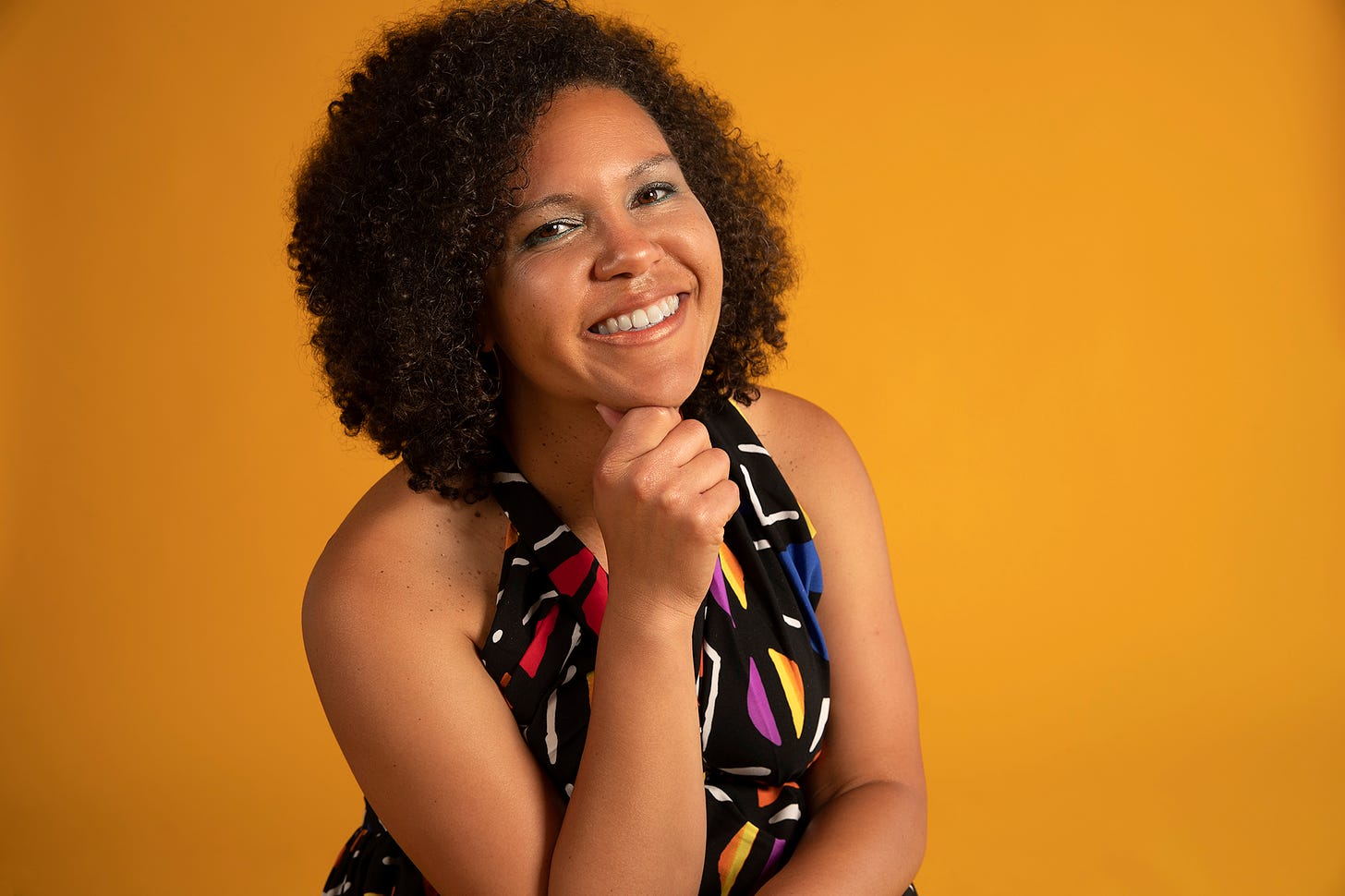
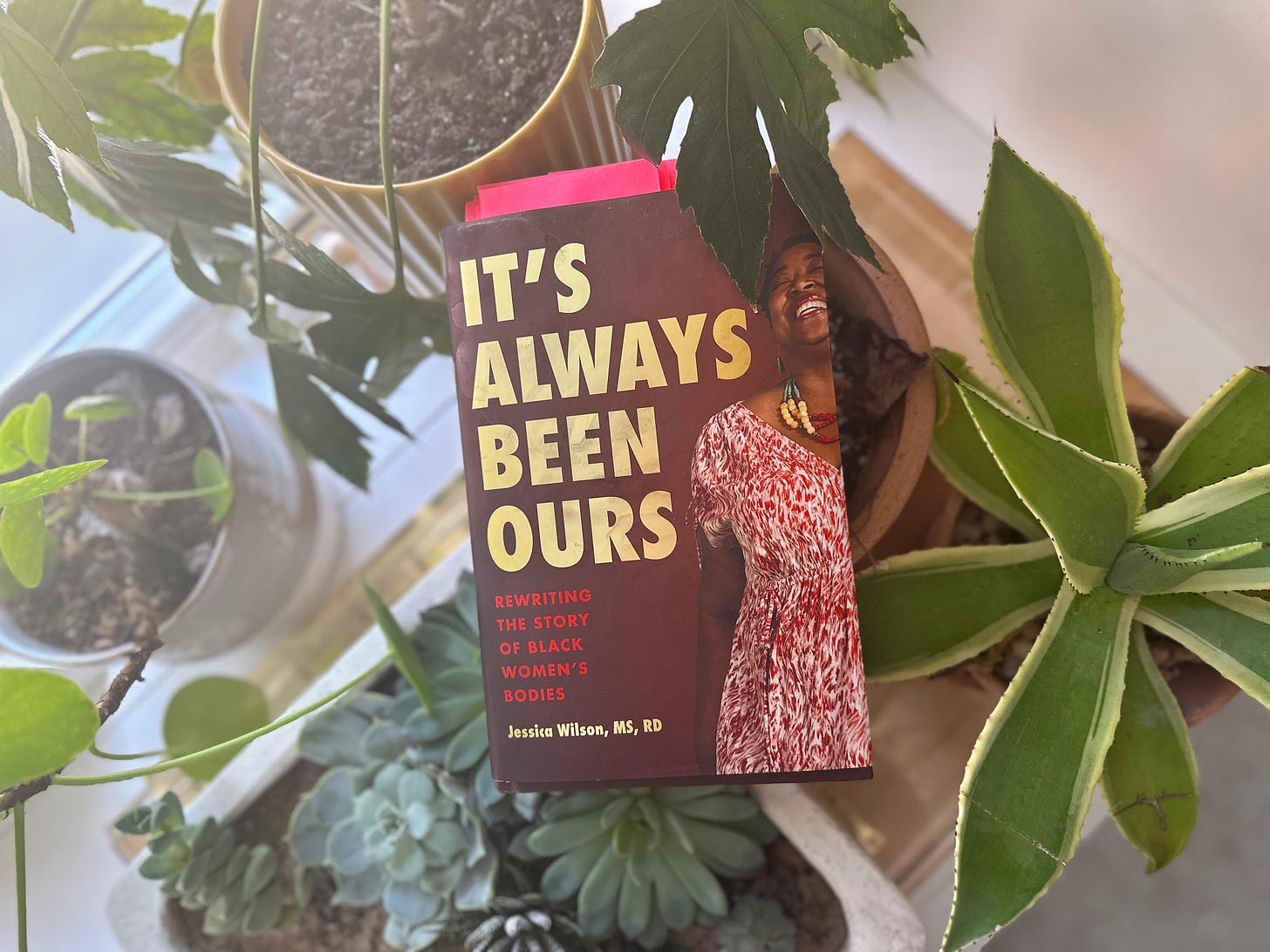




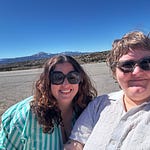


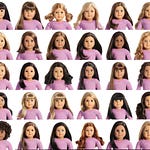



The Whiteness of Not Wanting to Diet Anymore.